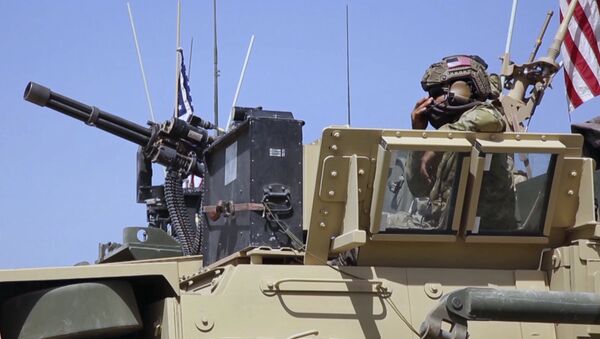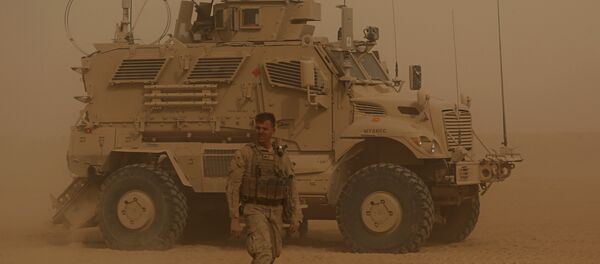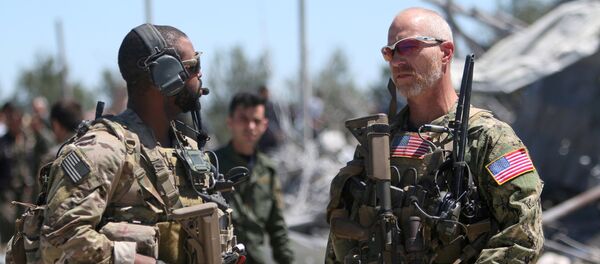WASHINGTON (Sputnik) — According to the Defense Manpower Data Center's recent quarterly report, there were 1,720 American troops in Syria, three times as many as the 503 troops previously reported.
"This seems to me the Pentagon is reporting more accurate numbers simply to justify their budget and requested budget increases," Kwiatkowski said on Wednesday.
Kwiatkowski noted that the admission was published immediately after the Thanksgiving holiday and at the beginning of the month-long run up to Christmas when the public was distracted by festive activities.
Consequently, the Defense Department "may be informing Congress of these activities and deployments as a means of justifying continued and increased expenditures even though these activities are not directly… covered under the often cited 2001 Authorization for Use of Military Force (AUMF)," she said.
The Defense Department’s admission on troop levels was important because it suggested US policymakers believed the threat of Daesh terrorist group (outlawed in Russia) was not fading as they publicly claimed, Kwiatkowski observed
"The numbers in Syria seem inconsistent with the administration’s public proclamations of having ‘defeated’ Daesh," she said.
The admission on Syria in fact reflected a far more widespread practice of increasing US military commitments around the world far beyond the levels that the American public was aware of, Kwiatkowski commented.
"The Pentagon, with or without the blessing of the administration, may have been deliberately hiding or downplaying the nature and extent of US military and intelligence operations around the world, specifically in the Middle East and Africa," she said. "These operations and activities are unpopular domestically and are not part of Trump’s messaging."
It remained unclear as to what the nearly 1,800 US troops, plus civilian staff, military contractors and CIA operatives were doing in Syria today, Kwiatkowski pointed out.
The average American remained both unaware and unsupportive of most of these military activities abroad, but the Defense Department itself was desperate to justify its increased budgetary requests, Kwiatkowski advised.




